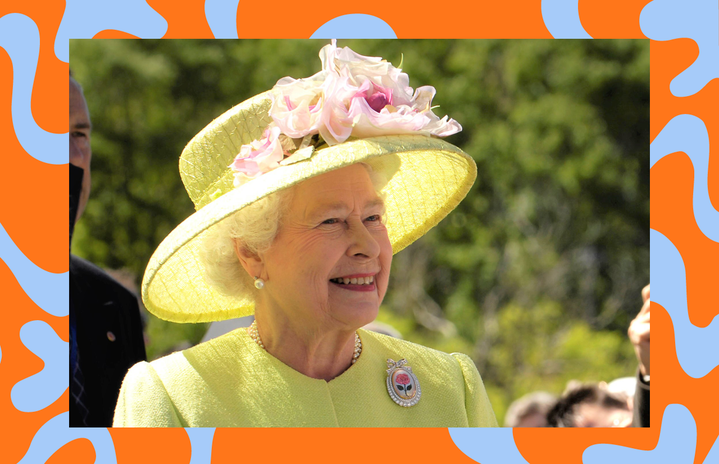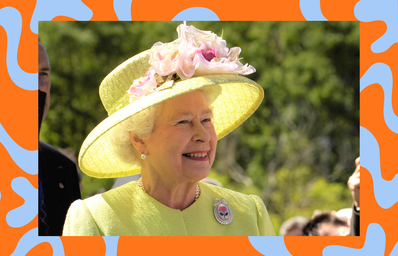Queen Elizabeth II, aged 96, has passed after reigning as the United Kingdom’s longest-serving monarch of over 70 years.
Queen Elizabeth II passed on Thursday, Sept. 8, at her most-favorited residence, Balmoral Castle in the Scottish Highlands. Her Majesty the Queen’s death makes her the longest-reigning monarch in the history of the United Kingdom, surpassing a little over 70 years on the throne. Surrounded by family, it was reported that Her Majesty died peacefully and that the family retains comfort in knowing the deep respect and affection with which she was so often regarded. Queen Elizabeth II contracted COVID-19 in February of this year and was said to be suffering “mild cold-like symptoms.” However, in a video in which the Queen attends a virtual hospital visit, she can be seen saying that COVID-19 left her “very tired and exhausted.” Despite remaining fairly active in her older age, Her Majesty had recently struggled with declining health resulting in mobility issues and the eventual cancellation of meetings and events at the behest of her doctors. Most recently, in fact, Her Majesty resorted to skipping the Highland Games event, Braemar Gathering, an event in fact, so loved and revered by Her Majesty, that it appears to be common knowledge of her fondness for it.
WHO WAS QUEEN ELIZABETH II?
Queen Elizabeth II, full name Elizabeth Alexandra Mary Windsor, assumed the throne on Feb. 6, 1952, shortly after the death of her father King George VI. Elizabeth, aged 25, inherited the throne nearly 45 years before the fall of the British Empire in 1997 and saw the nation through its transfer to a Commonwealth. Her Majesty made her first public speech in 1940 on BBC Radio at the young age of 14. She spoke to other children who were being evacuated from the Blitzkrieg in London during the Second World War as an act of empathy and solitude. She was said to have possessed a stoicism at times and a cheery playfulness at others, making her both well-liked and respected by many. Having reigned for seven decades and guiding the United Kingdom through many of the UK’s most influential times, Elizabeth exerted her rule in ways that entirely altered the shape of the United Kingdom and will continue to do so even following her death. These critical events range anywhere from Post-World War II recovery, the Cold War and the war on terrorism, to even more recently, both the entry into and withdrawal from the European Union. On Feb. 6 of this year, nearly 7 months prior to her death, Her Majesty celebrated her Platinum Jubilee of 70 years, making her the first British Monarch ever to do so.
WHAT HAPPENS NOW?
Due to her reign as monarch, the funds for a state funeral have already been allocated and more information regarding the details of this event is likely to be released by the officials at Buckingham Palace in the near future. The day of her funeral will be officially declared a Day of National Mourning and across the nation, a designated two minutes of silence will be observed.
Royal succession states that Queen Elizabeth II’s eldest son, Charles will become the 42nd monarch of the United Kingdom immediately following her death. Charles’ wife, Camilla, previously served as the Duchess of Cornwall and will now be deemed the Queen Consort, specifically requested by the late Queen. “It is my sincere wish that when that time comes, Camilla will be known as Queen Consort as she continues her own loyal service.” The Guardian writes that while Charles has already been made king, the official coronation will likely not take place for at least several months.
Union flags will be flown at half-mast in all royal residences and government buildings, as well as in UK posts overseas and across the Armed Forces. BBC News adds that all members of Parliament will be required to both take an official oath to King Charles and pay tribute to Her Majesty and her life.
Upon the death of Her Majesty, Prince William, and his wife, Catherine will now become the Duke and Duchess of Cambridge and Cornwall.
British historian Robert Lacey is quoted saying, “She will be remembered for keeping the British monarchy going through the 20th and into the 21st century – and for leaving it in better shape.”
Want to see more HCFSU? Be sure to like us on Facebook and follow us on Instagram,Twitter, TikTok, YouTube and Pinterest!


